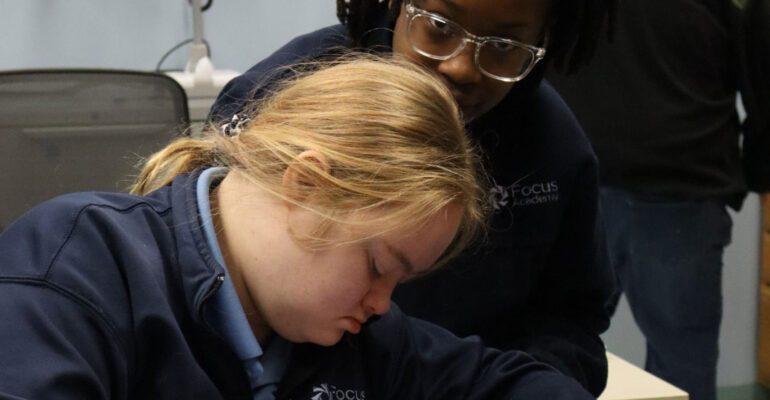Supporting Teen Mental Health in the Digital Age
May 21, 2025 2025-05-21 13:56Supporting Teen Mental Health in the Digital Age
Adolescence and young adulthood have always been times of growth and change – a time of questioning who we are by exploring new and different thoughts, ideas and feelings. Adolescence and young adulthood are also times of wondering where we fit in. For many young people this questioning may lead to feelings of anxiety and/or depression. Feelings of depression, anxiety and negative self view, have been recently plaguing our young people at rates never seen before. Suicide rates among adolescents rose nearly 53 percent between 2010 and 2020, and suicide is currently the third-leading cause of death for young people ages 10 to 18.
It is clear that access to social media has contributed to this rise. Apps like Snapchat for example – where young people are able to see in real time, where their friends are, what they are doing and with whom, may foster feelings of being excluded, left out or ignored. This has had a tremendously negative impact on the psyches of many young people. Filter apps have also negatively impacted young people in that they allow young people to compare their physical selves to those of celebrities and even classmates – who use these apps to filter and change their on-line appearance.
Overall, unrestricted time on social media may lead to an increase in obsessive thinking and behaviors by allowing young people to endlessly scroll through photos, videos and stories related to their own obsessions. And it may enable others with negative intentions to find and access young people online.
Yes, adolescence and young adulthood are definitely times of growth and change. Focus Academy recognizes this and understands that each young person has unique social and emotional challenges and that many struggle with managing their thoughts and feelings. Understanding this, Focus Academy’s philosophical perspective addresses the importance of proactively building social/emotional strengths to minimize mental health challenges.
We work first and foremost to foster in each student, a strong sense of connection with peers, staff, school, family and community, which is an essential factor in the development of feelings of success, belonging and overall positive emotional wellbeing. Daily social skills and mental health based programming enables our students to build some of those all important skills that lead to a stronger sense of self and positive identity. It teaches young people how to express their feelings, recognize when they need support, and how to ask for support when they need it. Families can help support the development of these important skills in their teens and young adults by listening and giving them their full attention, i.e., put away your own phone. Get to know your child’s friends and their parents. Host get togethers, know what’s going on in your child’s day to day life. Limit and supervise social media use and insist on full access to your child’s phone.
Spending time sharing and showing interest in things your child is interested in can help to strengthen the parent/child relationship at any age.
And finally, be aware of signs that they may be struggling and take those struggles seriously. Reach out for support right away. Don’t minimize or brush it off. Seek assistance. Your child’s school mental health or guidance department is a good first step in accessing resources. Above all – just be there. What all young people are looking for is love, attention and a sense of belonging, from the people they love most.
Loretta Gallo-Lopez, MA, Licensed Mental Health Counselor – Supervisor
Executive Director – Programs – Focus Academy






